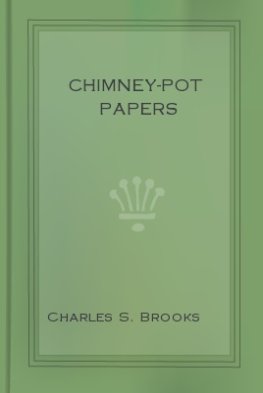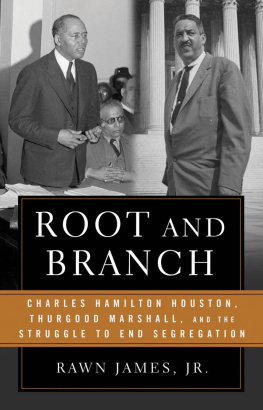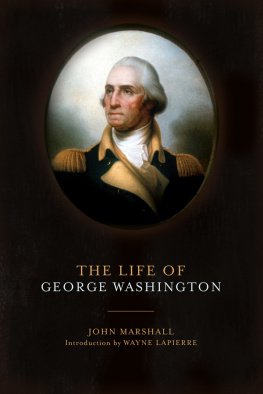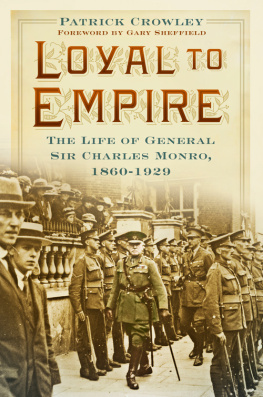This edition is published by PICKLE PARTNERS PUBLISHINGwww.picklepartnerspublishing.com
To join our mailing list for new titles or for issues with our books picklepublishing@gmail.com
Or on Facebook
Text originally published in 1927 under the same title.
Pickle Partners Publishing 2014, all rights reserved. No part of this publication may be reproduced, stored in a retrieval system or transmitted by any means, electrical, mechanical or otherwise without the written permission of the copyright holder.
Publishers Note
Although in most cases we have retained the Authors original spelling and grammar to authentically reproduce the work of the Author and the original intent of such material, some additional notes and clarifications have been added for the modern readers benefit.
We have also made every effort to include all maps and illustrations of the original edition the limitations of formatting do not allow of including larger maps, we will upload as many of these maps as possible.
AN AIDE-DE-CAMP OF LEE
BEING THE PAPERS OF COLONEL CHARLES MARSHALL SOMETIME AIDE-DE-CAMP, MILITARY SECRETARY, AND ASSISTANT ADJUTANT GENERAL ON THE STAFF OF ROBERT E. LEE 1862-1865
Edited by
MAJOR GENERAL SIR FREDERICK MAURICE
PREFACE
IN the spring of 1925 I published Robert E. Lee, the Soldier. The appearance of that book brought me a letter from one of the sons of Colonel Marshall, in which he was good enough to compliment me on the skill with which I had divined Lees intentions at various phases of the Civil War. He told me that my suggestions agreed very exactly with what his father, who had been Lees military secretary, had told him, and that there was much to the same effect in his fathers papers, which he kindly offered to send me. I naturally accepted so interesting an offer. As soon as I had time to examine the papers in detail, I found that many of them were of great historical value, and I so informed my correspondent, who then invited me to edit them for publication.
The circumstances in which they were prepared and the sources of Colonel Marshalls information are sufficiently explained by myself in the Introduction and by Colonel Marshall in the first part of Chapter IX.
The papers fall roughly into three parts: those that were intended for a projected life of Lee, those that were intended for an account of the campaign of Gettysburg, and those which consisted of notes on events of the war, of which some were used for lectures and addresses. Marshalls special position on Lees staff from March 1862 until the end of the war gave him opportunities for getting to know what was in his chiefs mind, which no one else enjoyed to a like degree; and as Lee never fulfilled his intention of writing his memoirs, these papers constitute the most authoritative defense of Lees generalship that has yet appeared.
I had deliberately limited the scope of my Robert E. Lee, the Soldier, because I had learned that a life of Lee based upon his papers was in contemplation; but I could not refuse on such grounds the invitation to edit Marshalls papers, as they seemed to me to be indispensable to a complete life of his chief. There is hardly one of the twelve chapters in which I present these papers which will not be found to contain important and authoritative information upon some question which has been a matter of dispute amongst historians, or to throw new light upon matters which have been obscure. The first two chapters give the most complete and candid description of the reactions of political exigencies in the Confederacy upon military plans and actions which I have ever read. The third gives an excellent exposition of Lees military policy. The fourth and fifth throw new light upon the facts and causes of Jacksons delays in the Seven Days. The sixth makes it clear that Lee never planned to fight the second Manassas, but that that battle was brought on by Stonewall Jackson. The seventh throws grave doubt upon the stories generally accepted that Lee was informed by a friendly citizen of Frederick that McClellan had found the famous lost order of South Mountain. The eighth should settle definitely the question whether Lee or Jackson devised the flank march round Hooker at Chancellorsville. The Gettysburg chapters contain much the fullest account yet published of the fateful orders issued to Stuart. The last chapter of all is the only account from a Southern witness of the historic scene in McLeans house at Appomattox.
One half of these contributions to history would have justified the publication of Marshalls papers; the whole makes an unique presentment from the Southern side. It is only necessary to read Marshalls graphic description of the surrender of the Army of Northern Virginia to realize that he wrote with malice toward none, but, as he himself says more than once, with a sincere desire to arrive at the truth. The Union of North and South which, as Marshall says, was made indissoluble at Appomattox, was dramatically portrayed in the war with Spain, when a son of Colonel Marshall performed for a son of Grant the same functions which from 1862 to 1865 the father had performed for Lee.
The Introduction is from my pen. I have intervened in Chapters VII and VIII to fill gaps in Colonel Marshalls papers, and have added to Chapter XI an interesting memorandum of a conversation with Lee, which Colonel Allan sent to Marshall. The remainder is wholly Marshalls, though I am entirely responsible for the selection and arrangement and for the notes. When there are differences in British and American nomenclature, I have retained the American; for example, advance guard for the advanced guard of the British Army.
Thanks are due to the Century Company, who have allowed the reproduction of many of the illustrations in this volume from their Battles and Leaders of the Civil War. All the maps are from this source except that of the Environs of Warrenton. The map of the Seven Days Fighting and that of the Maryland and Gettysburg campaigns have been redrawn to suit the needs of this book; the Confederate entrenchments and further territory have been added to the former, and details have been omitted in both.
F. MAURICE
November 1926
ILLUSTRATIONS
CHARLES MARSHALL
JAMES L. MASON
JEFFERSON DAVIS
ROBERT E. LEE
STONEWALL JACKSON
J. E. JOHNSTON
J. E. B. STUART
A. P. HILL
BENJAMIN HUGER
WADE HAMPTON
D. H. HILL
JAMES LONGSTREET
LEE AND JACKSON IN CONFERENCE ON THE NIGHT BEFORE CHANCELLORSVILLE
RICHARD S. EWELL
J. A. EARLY
GEORGE E. PICKETT
THE SCENE IN MCLEANS HOUSE AT APPOMATTOX
LEE AND MARSHALL RIDING AWAY AFTER THE SURRENDER
FAREWELL TO THE TROOPS. FACSIMILE OF LEES LAST ORDER
MAPS
REGION OF THE SEVEN DAYS FIGHTING
POSITIONS OF AUGUST 28, 1862
ENVIRONS OF WARRENTON
EARLY POSITIONS IN THE GETTYSBURG CAMPAIGN
POSITIONS OF JUNE 28
POSITIONS OF JUNE 30
RELIEF MAP OF THE BATTLEFIELD OF GETTYSBURG








